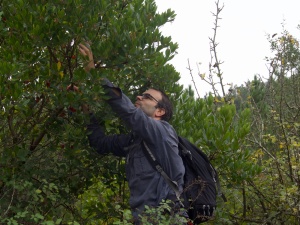Walter, G.M., Abbott, R.J., Brennan, A.C., Bridle, J.R., Chapman, M., Clark, J., Filatov, D., Nevado, B., Ortiz-Barrientos, D. & Hiscock, S.J. (2020) Senecio as a model system for integrating studies of genotype, phenotype and fitness.
New Phytologist,
226(2), 326-344. DOI:10.1111/nph.16434 (IF2020 10,151; Q1 Plant Sciences)
NON-cE3c affiliated
Two major developments have made it possible to use examples of ecological radiations as model systems to understand evolution and ecology. First, the integration of quantitative genetics with ecological experiments allows detailed connections to be made between genotype, phenotype, and fitness in the field. Second, dramatic advances in molecular genetics have created new possibilities for integrating field and laboratory experiments with detailed genetic sequencing. Combining these approaches allows evolutionary biologists to better study the interplay between genotype, phenotype, and fitness to explore a wide range of evolutionary processes. Here, we present the genus Senecio (Asteraceae) as an excellent system to integrate these developments, and to address fundamental questions in ecology and evolution. Senecio is one of the largest and most phenotypically diverse genera of flowering plants, containing species ranging from woody perennials to herbaceous annuals. These Senecio species exhibit many growth habits, life histories, and morphologies, and they occupy a multitude of environments. Common within the genus are species that have hybridized naturally, undergone polyploidization, and colonized diverse environments, often through rapid phenotypic divergence and adaptive radiation. These diverse experimental attributes make Senecio an attractive model system in which to address a broad range of questions in evolution and ecology.

